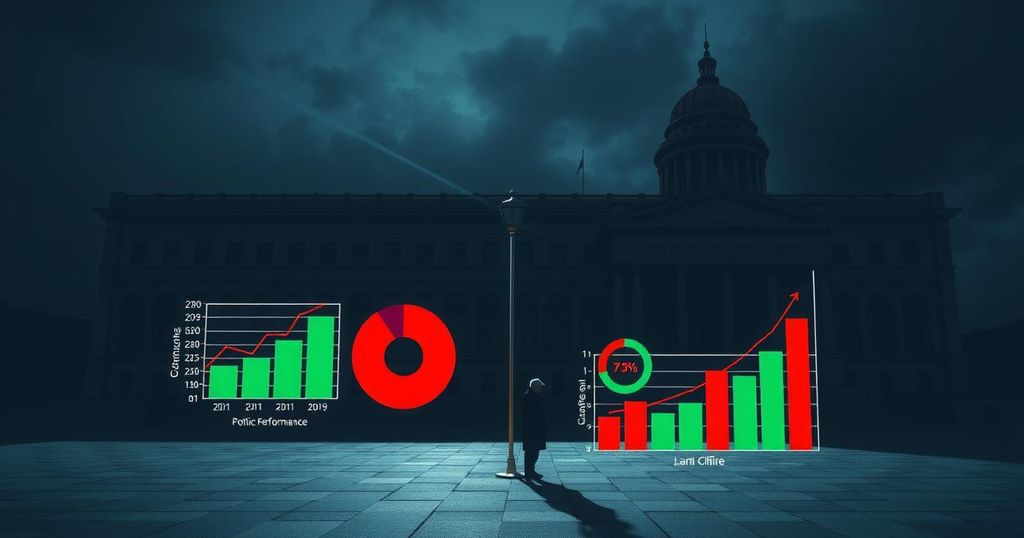NPP Struggles to Define Opposition Role Amid Parliamentary Success
A new assessment by the Ghana Academic Professional Forum reveals the NPP’s parliamentary group performs well, achieving 80% on legislative oversight, but struggles overall, scoring only 30% in policy development. The party’s failing to establish shadow ministries or engage publicly raises concerns about its role as an opposition five months post-government. As analysts note, these findings may point to deeper issues for the NPP ahead of the 2028 elections.
A recent academic study sheds light on the New Patriotic Party (NPP) as it navigates its role as an opposition party in Ghana. Conducted by the Ghana Academic Professional Forum, the assessment reveals a significant gap between the NPP’s performance in legislative duties and its overall party activities. The NPP’s parliamentary caucus received an impressive 80% for its legislative oversight, yet the party as a whole managed a mere 30% in formulating alternative policies.
Dr. Frank Bannor from the Ghana Institute of Management and Public Administration (GIMPA) presented these findings, indicating the NPP fell below 50% in six out of seven evaluated categories. Areas like public engagement and grassroots mobilization were highlighted as particularly lacking. “The Minority’s vigor in Parliament contrasts sharply with the party’s silence on national issues,” Bannor remarked. This observation underscores the party’s difficulties in maintaining visibility and influence across broader political discussions, especially with senior officials missing from pivotal moments.
Moreover, the report raises alarms regarding the NPP’s inability to establish shadow ministries or to present a coherent policy framework, nearly five months after it vacated government power. Analysts believe that these issues point to deeper structural problems within the party, which is increasingly under pressure to prove its relevance beyond parliamentary corridors.
According to political experts, the findings not only reveal the NPP’s current challenges but also set benchmarks for assessing opposition performance in Ghana’s changing democratic landscape. As the nation moves toward the 2028 elections, the implications of this report could be significant for the NPP’s strategy and future effectiveness as an opposition party.
As the NPP faces scrutiny over its functionality in opposition roles, the recommendations from this report call for immediate action. It highlights the need for the party to engage more actively with constituents and define clearer policy directions to enhance its representation in national discussions. The analysis could serve as a catalyst for the NPP to reassess its strategies and connect better with the electorate, vital for any political entity hoping to regain power in the next elections.
The Ghana Academic Professional Forum’s assessment exposes significant gaps in the NPP’s transition to opposition, revealing a stark contrast between their parliamentary successes and their overall effectiveness. With concerning scores in critical areas like policy development and public engagement, there is a pressing need for the party to address these issues as it faces growing scrutiny. As the 2028 elections approach, the NPP’s strategies will be closely watched, perhaps determining its future in Ghanaian politics.
Original Source: www.newsghana.com.gh




Post Comment